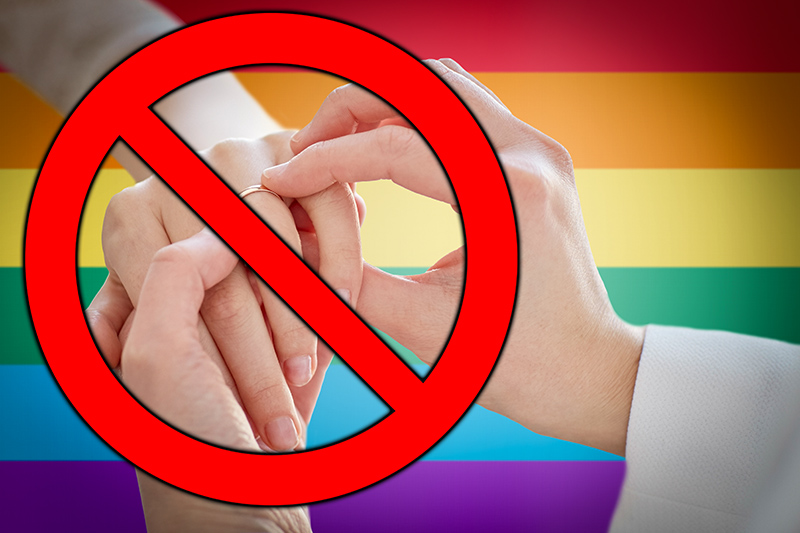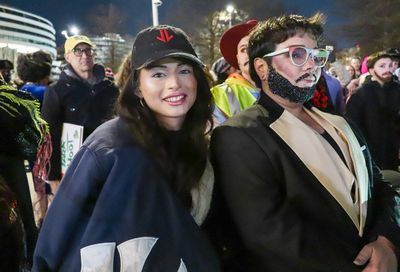Interrupted by a question from gay blogger Lane Hudson during a speech at the 2009 Netroots Nation conference, Clinton said signing DOMA was meant to head off an attempt by the Republican-controlled Congress to pass a constitutional amendment banning same-sex marriage.
”I didn’t like signing DOMA, and I certainly didn’t like the constraints it would put on benefits, and I’ve done everything I could,” Clinton said, adding public opinion is shifting rapidly on LGBT rights. But for advocates that doesn’t make it right.
”He should not have signed it,” Richard Socarides told Metro Weekly. Socarides, who advised Clinton on gay and lesbian civil rights issues, urged Clinton publicly and privately not to sign the bill, but says those were different times. ”If you look at DOMA with respect to what happened, it was a Republican campaign tactic and there was no opposition to it in the Congress, so had he vetoed it, it would have passed again.”
With more Americans accepting gay and lesbian couples as the norm in modern America, Clinton appears well aware of the stain DOMA has left on his legacy. His decision not to mention DOMA in his convention speech puzzled some and angered others.
”Where’s your apology for signing the Defense of Marriage Act?” asked New York Times columnist Frank Bruni in an open letter to Clinton published in December.
”At the Democratic National Convention, on the campaign trail, in speeches aplenty and during interviews galore, you spoke eloquently about what this country should value, and you spoke unequivocally about where it should head,” Bruni wrote. ”Such a bounty of convictions, such a harvest of words, except for one that’s long overdue: Sorry.”
Writing in New York magazine last February, Frank Rich noted that Clinton made no mention of DOMA in his thousand-page memoir, My Life.
”While ‘don’t ask, don’t tell’ can be rationalized (by some) as a bungled rookie effort at compromise during his early months in office, DOMA is indefensible,” Rich wrote.
Clinton has never ”wholly owned up” to approving DOMA, as Bruni put it, although he has affirmed his support for marriage equality since then. During an interview with CNN’s Anderson Cooper in 2009, Clinton admitted that he was wrong about same-sex marriage and he has lent his voice to some marriage-equality efforts in recent years. In a statement released by the Human Rights Campaign in May 2011, Clinton endorsed New York’s same-sex marriage bill. The following May, Clinton recorded an audio advertisement opposing North Carolina’s proposed constitutional amendment banning same-sex marriage, which was ultimately approved by voters.
”I think that President Clinton has done a lot and I think he’s pretty much done everything anyone has asked him to do,” said Socarides. ”Considering it’s fairly rare for a former president to say that he regrets an official action he took during his presidency, that is a fairly significant concession or admission and has helped affect public opinion in a positive way.”
”For me personally, saying that a law you signed was wrong and should be repealed is enough of an apology for me,” Socarides added.
Nevertheless, Clinton has largely been in the background of the LGBT-rights movement. And now, with the Supreme Court set to rule on DOMA and California’s Proposition 8, questions remain as to why one of the most popular politicians alive today has not played a more visible role in the fight for equality.
“Just as it helped enormously when General Powell finally reversed his position on DADT, it would be very helpful to have President Clinton state his support for the right for civil marriage to be available to same sex couples,” wrote Elizabeth Birch in an email to Metro Weekly.
Birch, who led HRC during the DOMA fight in the 1990s, said that while DOMA was clearly a ”strategic move by Republicans at the time to drive a wedge between his Administration and LGBT base,” Clinton’s popularity could lend even more momentum to the growing movement for equality.
”Given that President Clinton’s voice is so vibrant today on all the critical issues of our time, his support could be a critical element on our path to full marriage equality. And, of course, Secretary Hillary Clinton’s voice carries incredible authority on any topic. Her global speech on human rights for LGBT people was breathtaking,” said Birch.
Bill Clinton has yet to comment on the Supreme Court’s decision to consider the constitutionality of DOMA. Requests for comment from Metro Weekly were not returned, although no one doubts he hopes to see the law bearing his signature struck down.
Socarides speculates that Clinton will weigh in, as will Hillary Clinton – after she leaves her post as secretary of state – as the spotlight on DOMA and marriage equality grows with the Supreme Court’s attention. Traditionally, a standing secretary of state does not discuss domestic policy.
”I will guarantee you that in the briefs that the Supreme Court is going to get on our side, including from the Justice Department and from the plaintiffs, they are going to have a section in there that talks about the fact that President Clinton, who signed the law, now thinks it was a mistake,” said Socarides. ”The fact that he supports repeal of the law will be a significant and important part of the argument to the justices. And I think it will be persuasive.”






















